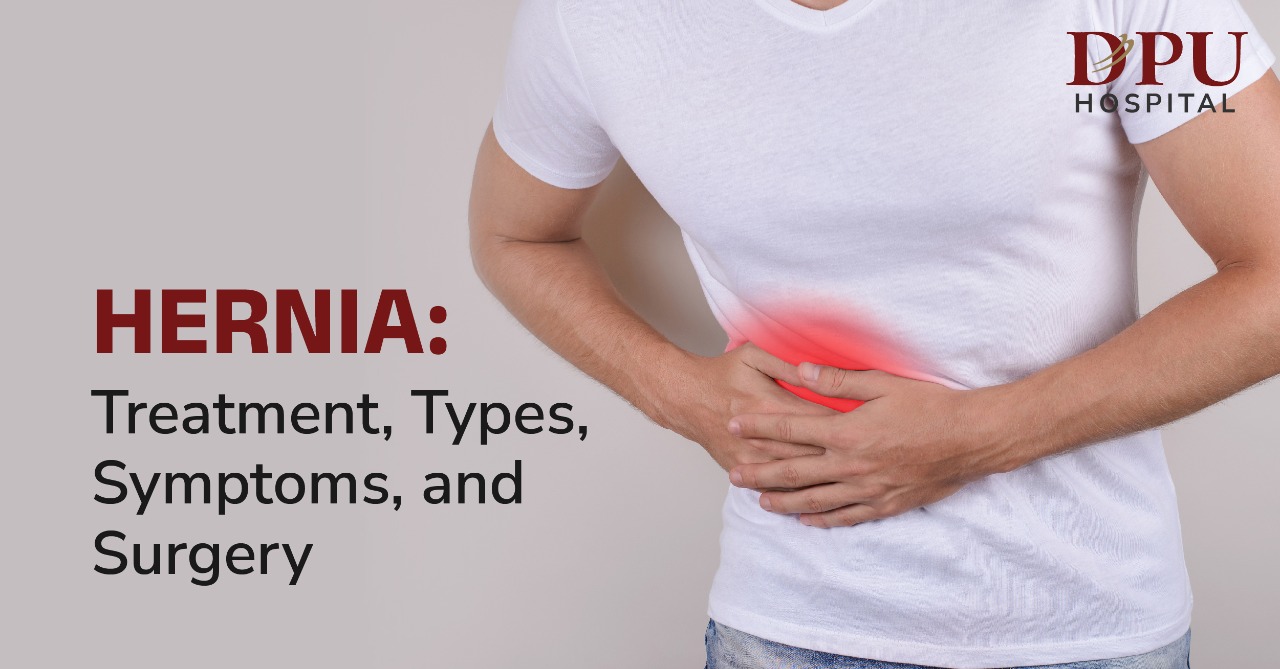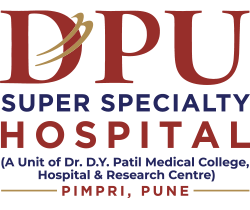Hernia: Treatment, Types, Symptoms, and Surgery

What Is hernia?
Layers of muscle and tough tissue wrap your abdomen, allowing you to move and protect internal organs. Hernia is a hole in the abdominal wall that allows the contents to protrude outward. There are various forms of hernias, however, the most frequent hernias occur in the abdomen or groin.
Hernia Surgery
Hiatal hernia symptoms are frequently addressed with medicine, while most other types of hernias necessitate surgical repair, albeit not usually immediately. There are two main choices:
- Open Hernia Surgery: The surgeon makes an incision in the groin to view and fix the hernia. After treating the hernia, the surgeon closes the abdominal wall with stitches or stitches and mesh. The mesh is intended to reinforce the weak portion of the abdominal wall where the hernia developed.
- Laparoscopic hernia repair: To see and fix the hernia, the surgeon makes multiple small cuts in the lower belly and inserts special tools. A piece of mesh is often used by the surgeon to seal and strengthen the abdominal wall. Some surgeons choose robotic repair, which involves sitting at a console and guiding robotic arms that execute the procedure.
Types of Hernia
There are several different types of hernia, the most common being inguinal, incisional, femoral, umbilical and hiatal.
- Inguinal Hernia: An inguinal hernia occurs when the intestine or bladder protrudes through the abdominal wall or into the inguinal canal in the groin. This type of hernia is most common in men, due to a natural weakness in this area.
- Incisional Hernia: The intestine pushes through the abdominal wall at the site of previous abdominal surgery in an incisional hernia. This type is more common in elderly or obese people who are sedentary following abdominal surgery.
- Femoral Hernia: A femoral hernia occurs when the intestine or other abdominal contents protrude through the femoral canal into the upper thigh. This type of hernia is more common in women than men, and usually affects those who are obese or pregnant.
- Umbilical Hernia: An umbilical hernia occurs when the intestine or other abdominal contents bulge through the navel (umbilicus). This type of hernia is most common in infants and young children, but can also affect adults.
- Hiatal Hernia: A hiatal hernia occurs when the stomach protrudes through the diaphragm into the chest cavity. This type of hernia is most common in people over the age of 50. Hiatal hernias are often associated with GERD (gastroesophageal reflux disease).
Symptoms of Hernia
When lying down, hernia in the belly or groin can cause a visible lump or protrusion that can be pushed back in or disappear. Laughing, sobbing, coughing, straining during a bowel movement, or engaging in physical activity may cause the lump to resurface after it has been moved into the colon. Other signs of hernia include:
- Swelling in the Groin: If you notice a bulge or swelling in your groin or scrotum, it is important to see a doctor as soon as possible. This could be a sign of hernia, which occurs when an organ or tissue protrudes through a weak point in the abdominal wall.
- Pain at the bulging place has become very severe: The pain often occurs at the site of the bulge and may radiate into the buttocks or leg.
- Pain while lifting: Hernia occurs when an organ or other piece of tissue pushes through a weakened spot in the muscle or surrounding tissue. Hernias can be painful, and they may cause difficulty lifting or moving. In some cases, hernias can be serious and require medical treatment.
- The size of the bulge grows larger with time: If the bulge or swelling in your groin or scrotum grows larger over time, it could be a sign of a hernia. It's important to see a doctor if you notice any changes in the size or shape of the bulge, as this could indicate a more serious problem. A doctor can perform an examination and recommend appropriate treatment.
What Are the Causes of Hernia?
Hernia can be caused by a variety of factors. Hernia typically begins with pressure on an organ or your intestines. When this pressure occurs in the same region it is because that muscle or tissue is weak. That's when the pain of hernia arises. Some people are born with weak muscles or underdeveloped tissue. Most people, however, get hernias as their bodies age and their muscles weaken.
Certain activities and habits can potentially cause hernia or worsen an existing one. These are some examples:
- Picking up heavy items
- Excessive use of the same muscle
- Coughing, sneezing, diarrhoea, or constipation can all cause squeezing.
- Being overweight or eating poorly
- Tobacco use
What Are the Treatments for Hernia?
Hernias seldom heal on their own, and surgery may be the only option to fix them. However, your doctor will advise you on the best treatment for your hernia and may refer you to a surgeon. If the surgeon believes it is necessary to repair your hernia, he or she will personalise the method of treatment to your specific needs.
- Open surgery: It involves making a cut into the body at the site of the hernia. The projecting tissue is sewn back together, as is the weakening muscle wall. To give additional support, a sort of mesh is sometimes implanted in the area.
- Laparoscopic surgery: The same type of repairs are performed during laparoscopic surgery. Instead of a cut to the outside of the abdomen or groin, microscopic incisions are made to allow surgical tools to be inserted to complete the process.
- Robotic hernia repair: It is like laparoscopic surgery, and is conducted through small incisions. The surgeon performs robotic surgery while seated at a console in the operating room, where he or she controls the surgical instruments. While robotic surgery can be used to repair minor hernias or weak spots, it can also be utilised to reconstruct the abdominal wall.
What Are the Home Remedies for Hernia?
If someone is diagnosed with hernia, the following natural therapies can help relieve hernia symptoms:
- Castor seed oil: This oil helps with stomach issues. Castor oil reduces inflammation in the stomach and promotes normal digestion. As a result, make a castor seed oil pack and apply it to the stomach to relieve discomfort and swelling near the affected area.
- Aloe vera juice: Because of its anti-inflammatory and calming properties, aloe vera juice can reduce some of the symptoms of hernia. People drink aloe vera juice regularly for its health benefits. Furthermore, you can drink this juice before every meal to reduce your chances of having hernia.
- Ginger root: To relieve stomach pain and discomfort, use concentrated ginger juice or raw ginger. It also improves your overall health. It prevents the stomach from producing gastric juices, which is common in cases with hiatal hernia.
- Ground black pepper: Black pepper is more than just a flavouring. It promotes healing in areas of the body that were harmed when the organ began to push through the cavity wall.
- Lose weight: Obese people are more likely to get hernia. One of the factors that can impede the healing process is obesity. Losing weight improves body posture and reduces physical strain on the body.
Exercises for Hernia
1. Button Drawers:
This exercise targets the abdominal core muscles. Strengthening this set of muscles can help avoid the recurrence of hernia. You should perform this exercise on a soft surface, such as your bed.2. Bicep curls when seated:
Strengthening your limbs can significantly improve your post-operative recovery from inguinal hernia surgery. You will need light weights for this exercise. If you don't have any dumbbells, you can use two cans of food from your cupboard.3. Pawanmuktasana:
Pawanmuktasana is a yoga exercise that strengthens your abdominal muscles and helps prevent inguinal hernias. This activity can also aid in the removal of gas from your digestive tract.Hernia Recovery
If you're considering breast augmentation, you'll want to know about the recovery process. The good news is that most women report minimal discomfort after surgery, and you should be able to return to work 1-2 weeks post-op. You may need more time off if your job involves manual labour. The best way to speed up your recovery is to take it easy and get plenty of rest. You should also avoid heavy lifting and strenuous activity for 4-6 weeks post-surgery. That being said, walking is a great way to stay active during your recovery and help the healing process. All in all, the key to a successful recovery is to listen to your body and take things slowly.Complications of Hernia
Hernias themselves are not dangerous nor are they life-threatening. However, hernias can lead to several problems such as:- Groin pain
- Back pain
- Testicular pain
- Inner thigh pain
- Scrotal swelling
- Intestinal obstruction
Rarely, untreated hernias can progress from intestinal obstruction to true vascular compromise of the intestinal tissues. When this occurs, it becomes a true surgical emergency resulting in the need for immediate emergency hernia surgery which may necessitate the removal of a portion of the intestines which have become non-viable as a result of the vascular compromise. Therefore, it is important to seek medical attention for hernia symptoms to avoid any potential complications.
What Kind of Doctor Do You See for hernia?
If you think you have hernia, the first step is to see your primary care provider. They will ask about your symptoms and do a physical examination. If they think you have hernia, they may order an imaging test. Once the diagnosis is confirmed, your treatment options will be discussed. In some cases, surgery may be necessary to repair the hernia. If this is the case, you will be referred to a general surgeon. The type of surgery will depend on the size and location of the hernia. Recovery times vary but are typically short. Depending on the surgery, you may be able to go home the same day or may need to stay in the hospital overnight. Follow-up appointments will be necessary to make sure the hernia is healing properly. With proper treatment, most people can expect a full recovery.
What Can Happen If hernia Is Not Treated?
A strangulated hernia, if left untreated, can lead to life-threatening illnesses such as necrotizing enterocolitis (severe intestinal inflammation) and sepsis. Because hernias can occur at any age, knowing the warning signs of hernias and being aware of them is critical.
Hernia Related FAQs
Q1. How to Prevent Hernia
There are several things you can do to help prevent hernia:
- Use proper lifting techniques: Whenever you pick something up, be sure to use your legs and back muscles, rather than your stomach muscles.
- Maintain a healthy body weight: If you are overweight, losing even a few pounds can help reduce your risk of developing hernia.
- Increase your core strength: Strong abdominal muscles can help support the area around your belly button and reduce your risk of developing hernia.
- Control diabetes: If you have diabetes, keeping your blood sugar levels under control can help reduce your risk of developing hernia.
- Quit smoking: Smoking increases your risk of developing hernia.
Q2. How to Cure Hernia through Acupressure
Acu-puncture anaesthesia is a technically hard treatment that necessitates the services of a skilled doctor who is familiar with traditional Chinese medicine and acupuncture procedures. The current investigation showed that hernia repair can be performed under acupuncture anaesthetic.
Q3. Can You Have Colonoscopy with Hernia
In cases when an inguinal hernia is discovered, colonoscopy should be postponed until the hernia is surgically repaired. However, when surgery is not an option and a colonoscopy is required, various measures can be utilised to lessen the chance of colonoscope imprisonment.
Q4. How Much Weight Can You Lift After Inguinal Hernia Surgery
Most patients will be urged to refrain from lifting anything heavier than 15 pounds for the first two weeks following surgery, while more difficult patients may have other restrictions. Individual restrictions will apply to different patients, but in general, you should be as active as your provider allows.
Q5. How To Avoid Hernia While Weight Lifting
Get help, utilise a hand truck or forklift, or lessen the weight if the cargo is too heavy. Always bend from the knees rather than the waist. Lift with your legs' muscles, your back upright, and correct ankle support. Warm-up with light dumbbells or barbells before doing any heavier exercise for athletes.
Q6. How Long Does Swelling Last After Inguinal Hernia Surgery
Because normal swelling following hernia surgery is part of the healing process, it might take the body three to six months to recuperate. Swelling may last longer than six months in patients with very big inguinal hernias that extend down to the scrotum.
Q7. How Much Cost For Hernia Operation
In India, the average cost of hernia surgery ranges from INR 18,000 to INR 45,000. However, pricing may range depending on the hospitals in different cities.
Q8. Can Hernia Mesh Be Removed
Hernia mesh removal surgery, also known as hernia mesh revision surgery, is performed on patients who have chronic pain, infections, or other major mesh-related problems following hernia treatment. Hernia mesh can be removed using open abdominal surgery, laparoscopic surgery, or robotic surgery.
Q9. Can Hernia Patient Do Surya Namaskar
No, Surya namaskar is not recommended if you have an abdominal hernia. You should first visit a doctor about this.
Q10. Can Hernia Be Cured Without Surgery
Regrettably, the answer is no. While hernia cannot heal spontaneously, it is usually always treatable with surgery.
Q11. What To Wear After Inguinal Hernia Surgery
Male patients will be recommended to wear compression shorts or tight-fitting boxer briefs for a few days after their inguinal hernia repair to assist in minimising swelling. There are no specific brands that are recommended or required, as long as they are more snug.
Q12. What Happens If You Lift Too Much After Hernia Surgery
Lifting too soon after hernia surgery can result in a recurrence of the hernia as well as other issues. Do not continue to be sedentary. Moving gently (for five to ten minutes) at least five or six times per day, as well as practising breathing exercises, can help prevent blood clots in your lungs.
Summary
Many persons who suffer from Hiatal hernias have no symptoms and do not require medical attention. However, for patients with more severe hernias, medication, lifestyle changes, and, in some situations, surgery may be required to correct the hernia and relieve painful symptoms such as heartburn and chest pain. Losing and maintaining a healthy weight, quitting smoking, eating smaller amounts, limiting certain fatty and acidic foods, and eating meals at least 3 to 4 hours before lying down can all help you manage the symptoms of a hiatal hernia.
Get the best treatment at DPU!
If you have hernia, it is important to seek medical attention. Hernias usually do not get better on their own, and surgery may be the only way to repair them. However, your doctor will recommend the best therapy to address your hernia and may refer you to a surgeon. If the surgeon thinks it is necessary to repair your hernia, then the surgeon will tailor the method of repair that best meets your needs. You can trust our team at DPU Hospital for quality care and treatment for all of your health concerns. We provide excellent medical services for our patients. Make an appointment today and let us help you get back on track to good health!








